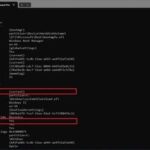If you’re facing the possibility of your car being repossessed in Connecticut, understanding the legal framework surrounding this process is crucial. A key question that often arises is regarding the credentials of the individuals reclaiming the vehicle: what license do you need to repo cars in CT? This guide will delve into the specifics of Connecticut law regarding vehicle repossession, clarifying the licensing requirements, or lack thereof, and outlining your rights throughout the process.
Connecticut law permits lenders to repossess vehicles when borrowers default on their auto loans. This right is established through the retail installment contract signed when financing the vehicle, which grants the lender a security interest in the car. Default isn’t solely about missing payments; it can encompass various breaches of your loan agreement, as defined in your contract. Importantly, repossession can commence as soon as you are in default, provided your loan agreement stipulates repossession as a consequence.
Navigating Notice and No-Notice Repossessions in Connecticut
Connecticut law allows for two scenarios regarding repossession: with prior notice and without. While lenders can provide notice, it’s not legally mandated. However, whether you receive notice significantly impacts your rights post-repossession.
Should your lender opt to provide notice, it must be a formal written communication, delivered via certified or registered mail, or in person. This notice must detail:
- The specific default that triggered the repossession risk.
- The actions required to “cure the default” and reinstate your loan to good standing.
- A deadline, at least 10 days post-notice receipt, to cure the default. Repossession cannot occur before this deadline.
- A directive to remove all personal belongings from the vehicle.
- A concise summary of your rights following repossession.
Conversely, Connecticut law permits lenders to proceed with immediate repossession upon default without any prior notification. In such cases, if you aren’t present during the repossession, the lender is obligated to inform local law enforcement within two hours. Furthermore, within three days of reclaiming your car, the lender must send you a written notice, either hand-delivered or sent via certified mail. This post-repossession notice must include:
- The precise amount needed to cure the default, including repossession and storage costs, presented as an itemized statement. Failure to provide this notice or cost breakdown prevents the lender from charging these fees later.
- A deadline, at least 15 days after notice receipt, to cure the default and reclaim your vehicle. The lender is prohibited from selling or removing the car from Connecticut before this deadline.
- Instructions for retrieving personal items left in the repossessed vehicle.
Preventing Repossession: Taking Proactive Steps
If you receive a pre-repossession notice, you have the opportunity to prevent the repossession by curing the default before the stated deadline. This typically involves paying all overdue amounts and any accrued interest. Even if you haven’t received formal notice but are aware of being behind on payments, you can still likely prevent repossession by bringing your account current before the car is actually taken.
Open communication with your lender is crucial. If you anticipate difficulty making payments, contact them immediately. Explain your situation and explore options to avoid default or repossession. Lenders are often more willing to work with you proactively before the loan falls into default, offering solutions like revised payment plans or temporary forbearance.
Understanding the Role and Limitations of Repo Companies in Connecticut
Repo companies in Connecticut operate under specific guidelines. They are authorized to take your vehicle from any location, public or private, at any time. However, this authority is constrained by the critical restriction: they cannot “breach the peace.”
“Breach of the peace” is a legal term, not explicitly defined in Connecticut statutes, leaving its interpretation to judicial discretion on a case-by-case basis. Generally, it prohibits repo agents from engaging in disruptive or excessive noise, threats, or harassment.
Crucially, repo agents cannot employ violence or force during a repossession. This means they cannot physically remove you from the vehicle, break locks, or forcibly enter enclosed spaces. While they can enter your driveway, garage, or yard if accessible without force, they are prohibited from entering a locked garage or gate. This “breach of peace” rule applies to you as well; resisting with excessive noise, force, violence, or threats can lead to criminal charges.
Regarding the initial question: Connecticut law does not mandate repo agents to present any specific license before repossessing your vehicle. If you are present during a repossession and have concerns, you can contact your lender directly to verify the authorization of the repossession. If your vehicle is repossessed without your presence, contacting your local police department can confirm that it was a repossession and not theft, as repo agents are required to report non-consensual repossessions to local law enforcement within two hours.
Personal Property and Post-Repossession Procedures
If you receive pre-repossession notice, it will instruct you to remove personal belongings. Even without notice, proactively removing personal items is wise if you suspect repossession. This avoids the inconvenience of retrieval later.
If your car is repossessed without prior notice, the lender’s post-repossession notice must detail how and where to reclaim your personal property. Retrieving belongings within 15 days of repossession is free of charge. After 15 days, you have up to 60 days to claim your property, but storage fees, capped at $25 under Connecticut law, may apply. Unclaimed property after 60 days can be sold or disposed of by the repo company.
Following repossession, the lender is required to sell the vehicle, either privately or at public auction, within 180 days. At least 10 days before the sale, you must receive a “notice of intent,” informing you of the lender’s plans.
For public sales, the notice includes the date, time, and location, and a contact number for more information. You have the right to attend and bid on your car. For private sales, the notice omits the sale date but includes a cutoff date, at least 15 days post-notice, before which the sale cannot occur.
Within 30 days post-sale, the lender must provide a statement detailing the sale price and the car’s fair market value, calculated using a Connecticut-specific formula. This value is credited to your outstanding balance. If the sale price exceeds the fair market value, the actual sale price is credited. Any remaining balance after this credit is termed a “deficiency balance.”
Deficiency Balances and Reclaiming Your Vehicle
After repossession and sale, you may still owe a “deficiency balance.” This arises when the car’s sale price or fair market value doesn’t cover your total loan balance, including repossession and sale costs. These costs can encompass towing, storage, administrative fees, auction expenses, and legal fees. Requesting an itemized statement from your lender will detail these charges. Unless your original car purchase price was below $4,000, you remain responsible for this deficiency balance.
Voluntarily surrendering your car, known as voluntary repossession, can avoid added repossession and sale charges, though you’ll still likely be responsible for any deficiency balance.
You have options to reclaim your vehicle after repossession. If repossessed without prior notice, paying all past-due amounts, interest, late fees, and repossession costs by the deadline in the post-repossession notice will reinstate your ownership.
Even if you can’t cure the default immediately, or if you received pre-repossession notice, you have a “right of redemption.” This allows you to reclaim your car by paying the entire remaining loan balance, plus unpaid interest, fees, and repossession/sale charges, before the sale or cutoff date specified in the “notice of intent.”
Understanding your rights and Connecticut’s repossession laws is vital when facing auto loan difficulties. While no specific license is required to repo cars in CT, regulations are in place to protect borrowers. Proactive communication with your lender and awareness of your options are key to navigating potential repossession effectively.


